Australia’s major China miscalculation shows we need to adapt to win
China’s wolf warriors scored a major victory over Australia in a “calculated” move that proved their tactic is working. So how should Canberra respond?
China’s word warriors scored a major victory over Australia this week. It was a deliberate manoeuvre in what Beijing considers to be a clash of civilisations. So what do the wolf warriors want?
Chinese Ministry of Foreign Affairs spokesman Zhao Lijian on Monday posted a graphic – but fake – image of an Australian soldier holding a knife to an Afghan child’s throat. “Shocked by murder of Afghan civilians and prisoners by Australian soldiers,” he tweeted.
RELATED: China’s plan to break Australia
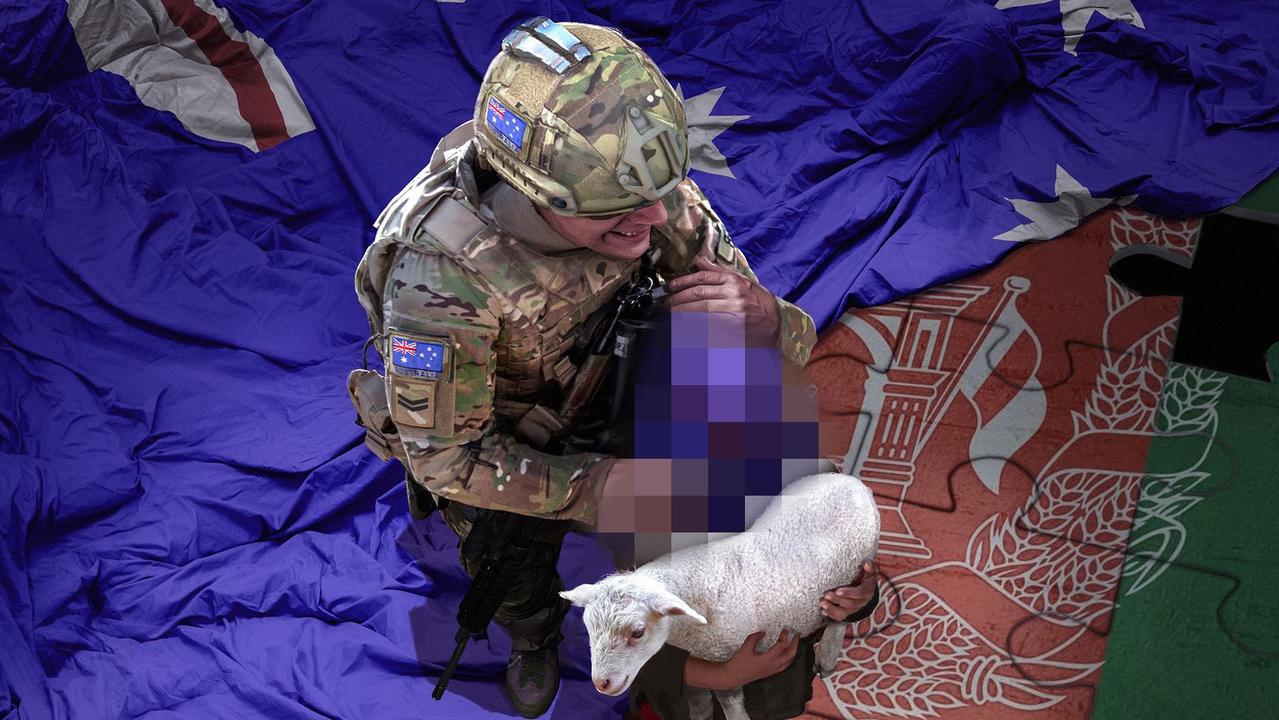
The allegations against Australian SAS Regiment war crimes are real. As are Canberra’s moves to investigate and punish them if needs be. But the falsified image and manufactured outrage was a bridge too far for Australia Prime Minister Scott Morrison.
Macquarie University professor of Asia-Pacific security studies Bates Gill says the resulting fiery exchanges represent a “new normal” in Australia-China relations.
And we must expect more of it.
“It’s a purposeful ratcheting up of the provocation to further underscore the economic and political signals we have already been getting from Beijing,” he told news.com.au. “This is not just some troll. It was a calculated, well-designed shot directly at the heart of a highly sensitive political issue in Australia which would create a national and international embarrassment.
“And it’s a warning to others: Australia may be resilient enough to stand up to some of this, but there are lots of other countries out there that certainly are not.”
EXPECT ESCALATION
“I would say that it’s qualitatively different from what we’ve seen in the past, and that’s whether we’re talking about punitive economic measures or other vilification in the State media,” Professor Gill says of the nature of Zhao’s controversial tweet.
RELATED: Satellite image reveals China’s plan
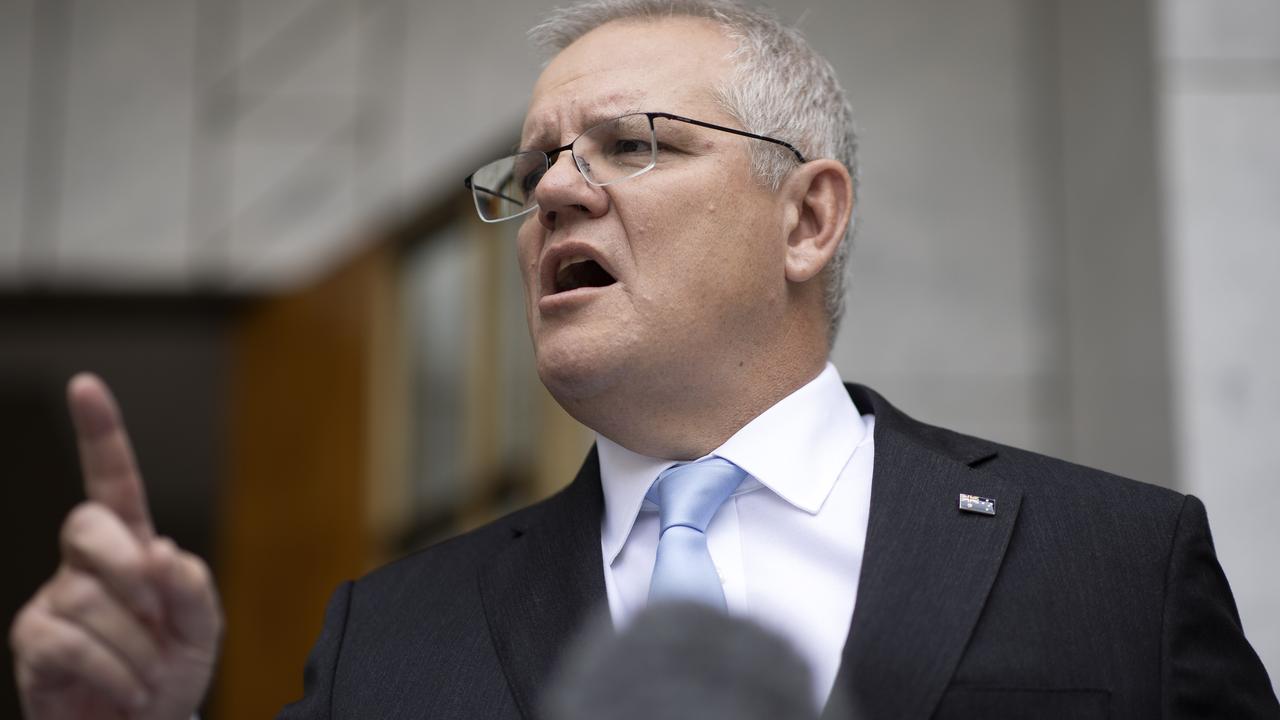
And it’s not just about us.
“There may be other objectives for the international audience. Some foreign audiences might like to see Australia poked in the eye, might like to see a little comeuppance for the West,” he says.
It’s about boosting confidence within China. It’s about testing Australia’s limits. And there may be personal, professional ambitions at play.
“It’s pretty clear that there are professional advantages to leaning forward, pushing the envelope and coming up with these sorts of controversial statements. I have looked at Zhao Lijian’s career progression. And it’s pretty clear he continues to be promoted even after a lot of controversy in association with him and his Twitter account.”
RELATED: Photo reveals village that shouldn’t exist
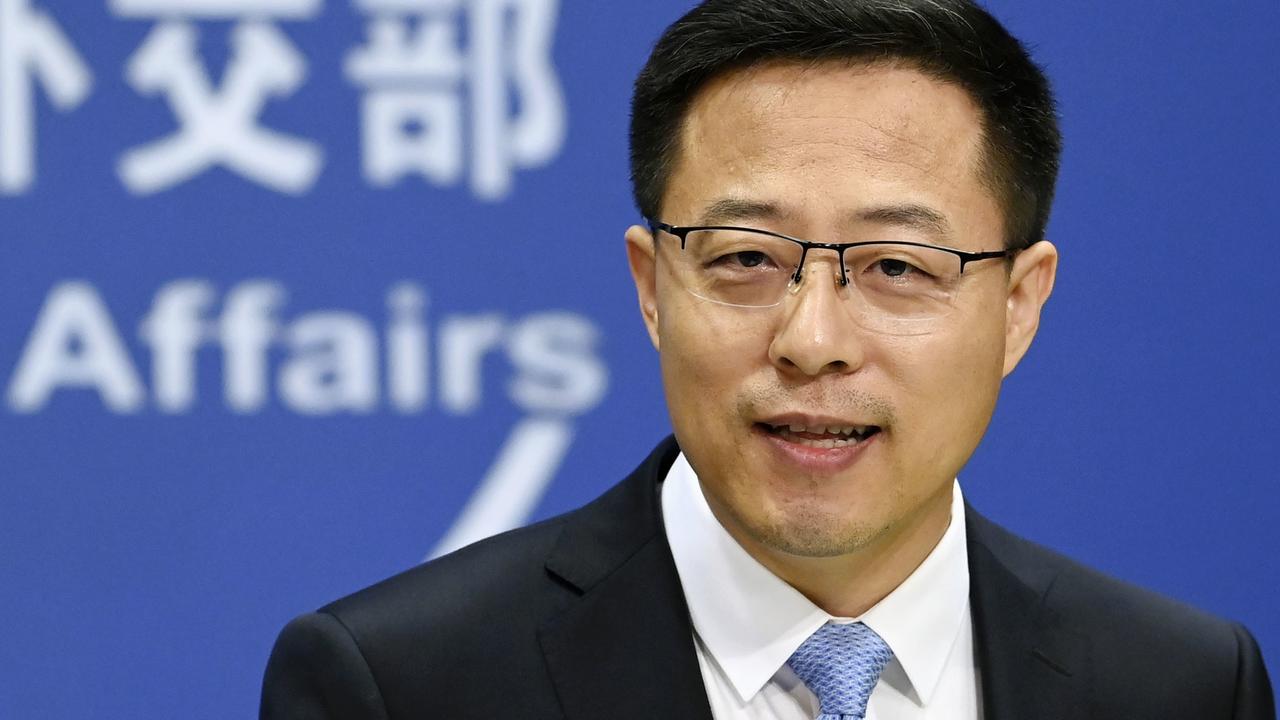
The mid-ranking foreign affairs official opened his account in 2010. He began using it to incite controversy while a diplomat in South Asia. Since being appointed foreign ministry spokesman, Mr Zhao’s only strengthened his reputation for being the most prolific and outrageous of the ‘wolf warrior’ propagandists.
Earlier this year he was behind fake accusations that the US military had intentionally spread COVID-19 as a biological weapon. There was no apology. No back down.
“This isn’t something where Zhao woke up in the morning, like President Trump might, and just dashed something off,” Professor Gill says. “I’m sure it was thought through, it was premeditated and at least understood to be controversial to begin with. And, for that very reason, it’s useful.”
Australia can expect no apology for such a deliberate act of Chinese Communist Party policy, he says. “A person in this position knows very, very well what the boundaries are, what the expectations are, and would have made a calculated decision. And that’s why I think this is qualitatively different. For this to be deemed allowable or worth the risk I think tells us a lot about the larger system at work here.”
WAR OF THE WORD WARRIORS
Australia must adapt its mindset, Professor Gill says. Information warfare isn’t just about cyber attacks, disrupting information systems or stealing data.
It’s about undermining the trust and beliefs that make us what we are.
Democracy. Human rights. Being equal under the law. Government transparency and accountability.
“We in the West equate warfare too narrowly with violence and kinetic activity, which is a portion of warfare for sure,” he says. “But, in the eyes of the Chinese Communist Party, political struggle short of kinetic war is critically important.”
That means any tool – be it economic, diplomatic or the truth – can be weaponised.
And wielding every means available short of kinetic weapons leaves the West exposed.
“China’s not the first society in the world to understand that when you’re outgunned in traditional forms of warfare, you operate in other realms below the threshold of kinetic warfare, in asymmetric ways,” he says. “That kind of thinking is as old as history itself.”
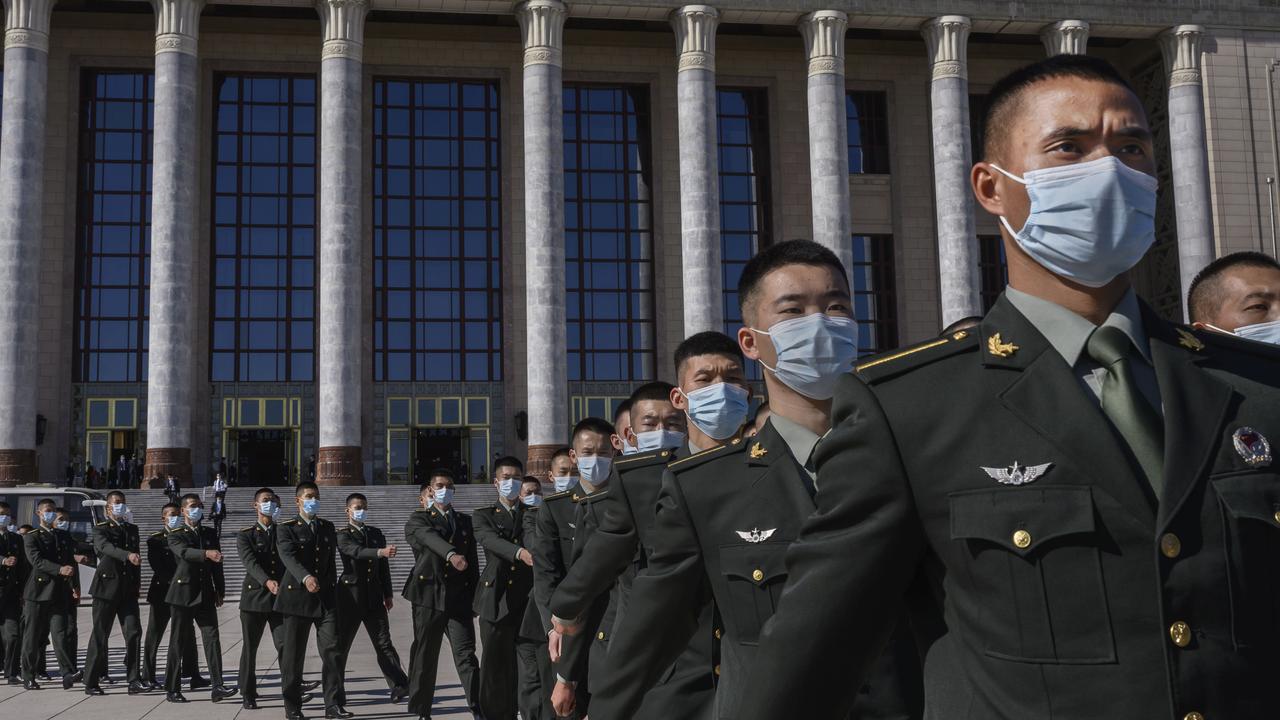
RELATED: Doctored image is attempt to break our nation
Beijing, he says, is likely some 20 to 30 years off from its desired level of military heft.
It’s economy is strong. It’s military is large. But how far can they really go in forcibly using them against others?
“Do they feel confident using them? I don’t think so. Not yet. And, of course, there’s risk,” he says.
Decoupling from the established international diplomatic and economic order would be crippling. And confronting even regional militaries still presents a real risk of failure.
“At the end of the day, China really still lacks a full spectrum of tools they can deploy to push back. But they seem to think that wolf warrior diplomacy and other propaganda can be very effective.”
Wolf warrior diplomacy, he says, can help achieve Beijing’s strategic goals and produce desirable political outcomes “without having to undertake serious risk”. And, “it presents themselves as being strong”.
END GAME
Professor Gill says Beijing’s increased diplomatic and propaganda assertiveness is already being translated into military action.
Lives have been lost in border clashes with India. Japan’s air force and navy are constantly active countering incursions on its territory. It’s fishing fleet has been assertively expanding its range. And Beijing has increased its efforts to intimidate the US, Australia and South-East Asian nations in the South China Sea.
“So, yes, this more assertive behaviour certainly translates into a more assertive military agenda on China’s part, and I think we do need to be concerned in the next couple of years – whether or not Xi believes it is necessary to take even more forceful action against Taiwan,” he told The Conversation. “That’s, I think, an area where a likelihood of a real serious military incident is increasing with each passing day.”
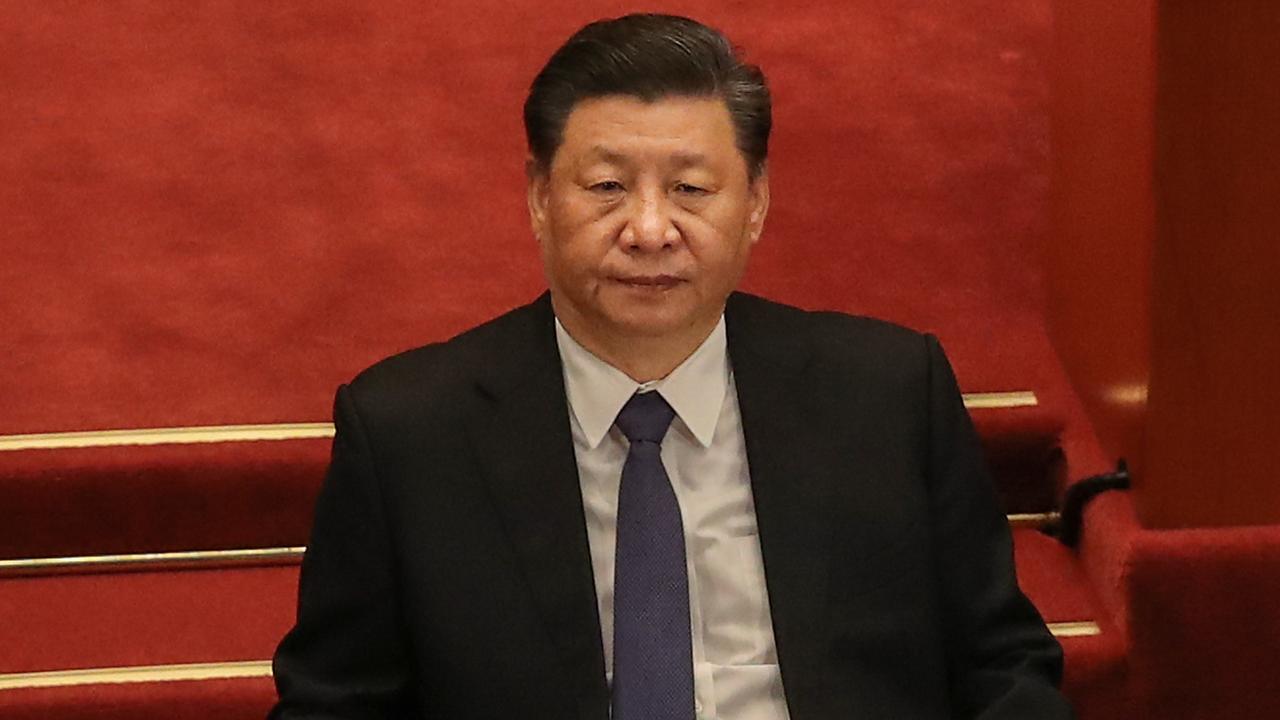
RELATED: China lays into Jacinda Ardern for supporting Australia
Meanwhile, Beijing can be expected to continue its aggressive posturing and punitive economic acts to appease Chairman Xi’s ambitions.
“Becoming more resilient in the face of such political warfare will have to be more than diversifying toward other economic partners or hardening our cyber infrastructure,” Professor Gill says. “Our society needs to be smarter about the ambitions of China under Xi Jinping and have a more open debate about the difficult trade-offs between interests and values.”
Then there’s ensuring our values are evenly and effectively applied.
“I am worried that our concerns with the PRC government too often translate to ‘red scare’ style discrimination against Australians of Chinese descent,” he says. “Sowing those kinds of divisions in our society undermines our resilience and solidarity in what is becoming a battle of ideas and ideals.”
The list of 14 grievances issued against Australia last week offers real insight as to what the Chinese Communist Party expects.
“Keeping our heads down, not criticising the nature and actions of the regime in Beijing, and just generally being more accommodating and friendly towards China’s steady rise, and ambitions,” Professor Gill says. “That’s what they want out of Australia. They want respect, and they want Australia to get out of the way. That’s not going to happen.”
Jamie Seidel is a freelance writer | @JamieSeidel




